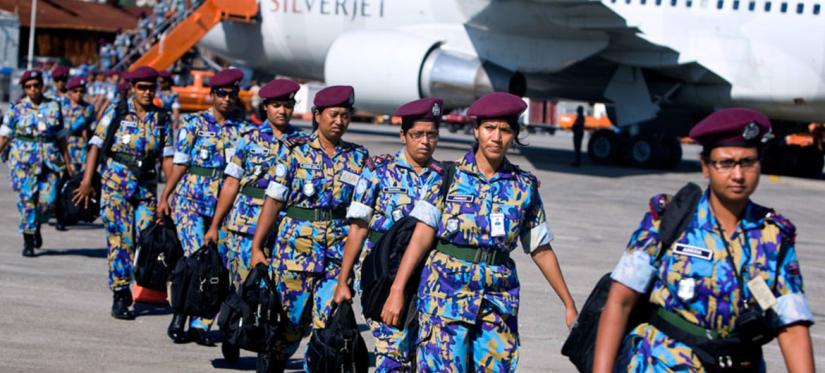 Bangladesh has called for redoubling of efforts to boost women’s presence in peacekeeping operations and reiterated its government’s stand against sexual exploitation and abuse by UN peacekeepers.
Bangladesh has called for redoubling of efforts to boost women’s presence in peacekeeping operations and reiterated its government’s stand against sexual exploitation and abuse by UN peacekeepers.
Addressing a meeting of the United Nations Special Committee on Peacekeeping Operations, Masud Bin Momen, Bangladesh’s permanent representative to the UN, has said that the number of women peacekeepers can be increased by incentivising their participation.
“This can be done by adopting an innovative approach for creating enabling environment for them,” said Mr Momen.
Bangladesh, one of the biggest troop contributors to the UN, first deployed female peacekeepers to a UN mission in 2000, and in 2010 deployed the first all-female peacekeeping unit in Haiti.
The UN Security Council in 2015 had called for doubling its female deployment in peacekeeping and the UN’s office of Military Affairs had set a target of deploying 15 percent women military and staff officers in peacekeeping missions by the end of 2018.
Bangladesh’s call for enhanced women’s participation at the UN comes days after the Under-Secretary-General for UN Peace Operations, Jean-Pierre Lacroix, in a recent interview stated: “The more women we have in peacekeeping operations, the better the results.”
He said that women enhance the peacekeepers’ ability to build confidence with the communities in which they serve and to engage with them.
This renewed call also comes at a time when UN peacekeeping missions have been dogged by several allegations of sexual abuse and exploitation by peacekeepers and other personnel.
The Bangladesh representative at the UN emphasised the need to stand strongly behind Secretary General’s “zero tolerance policy” on the issue of sexual abuse by peacekeepers.
“Bangladesh is doing its part,” said Mr Momen, adding, “Our Prime Minister Sheikh Hasina is a member of the circle of leadership on the prevention of and response to sexual exploitation and abuse by peacekeepers.”
Mr Momen said that peacekeeping remains an important pillar in his country's foreign policy priorities and that Bangladesh takes a “value-driven approach” to peacekeeping.
“The triangular relationship between troop- and police-contributing countries, the Security Council and the Secretariat must be strengthened, with missions given clear, realistic and achievable mandates,” he said.
Calling for improved safety and security for peacekeepers, he said those Member States which can provide specialised equipment and training must come forward.
He expressed his country’s support for the creation of an integrated performance evaluation framework, but at the same time also emphasised that “alleged performance failures should not be grounds for cost-cutting and force reduction”.


